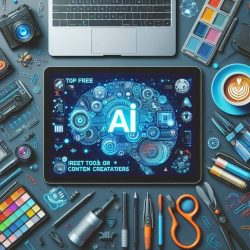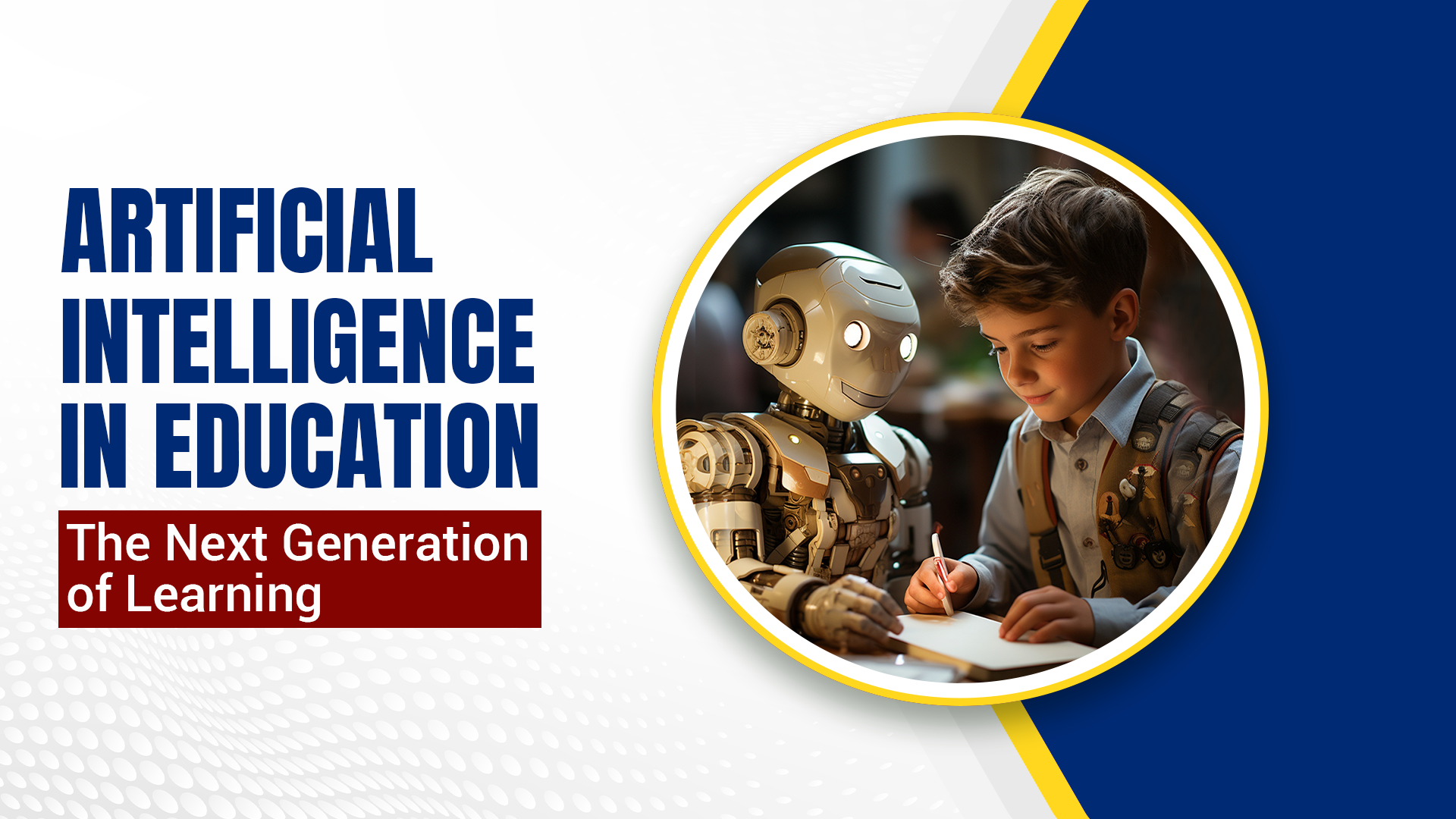It’s not 1000 years ago when we used to attend our classes or projects with pen and paper to prepare notes. Or times when we spent hours and hours to understand a complex concept, which our teacher couldn’t explain the way it clicks to our mind. Thanks to artificial intelligence in education when don’t need to carry loads of books, pen and notebook for classes and lectures. AI is going to revolutionize the way we learn, and going to make it more personalized, efficient and effective as well.

With this blog, we are going to explore on how AI is impacting education, different tools of AI for education and what can we expect from AI for education system.
How AI is impacting education
There are several ways through which education field is getting transformed.
- Personalized learning: this feature of AI helps to adjust the difficulty level of course material as per the performance of students which offers them personalized learning experience.
- Intelligent tutoring system: This feature of AI offers virtual tutors to provide one-on-one support. This helps students to overcome obstacles and understand complex concepts easily.
- Automated grading – The other importance of ai in education is that it saves up the time of instructors by offering AI powered grading system. This helps instructors to focus their time on teaching and mentoring.
Enhanced Accessibility – there are different AI tools such as speech to text system and virtual learning environment which makes education more accessible to students who have disabilities.
Different tools of Artificial intelligence in education
1- Chat bots – These chatbots are responsible to offer students with instant support, answering queries and help them complete their tasks.
2- Virtual learning environment – AI driven virtual learning environment simulate real world scenarios this helps students to practice and apply the skills in a safe and controlled setting.
3- Adaptive learning software – this tool helps to adjust the difficulty level of the course material based on the student’s performance.
4- Natural language processing – the next up tool of AI helps students to improve their language skills such as reading comprehension and writing.
These are some of the tools that makes AI an integral part of the education system. Not only this but it helps to offer best support to students and saves the time of instructors as well.
What is the future of artificial intelligence
As AI technology is continuously getting advanced we can expect many of the innovative applications in education:
1- AI powered virtual mentors- With the AI platform learning, we will see virtual mentors who will offer students with personalized guidance, support and encouragement.
2- AI driven learning analytics – With power of AI, instructors would easily identify the knowledge gaps and develop targeted intervention.
3- AI powered virtual reality – With the help of AI students would be able to immerse themselves in interactive and 3D learning environment.
4- Increase transparency and explainability – AI is going to be more pervasive, there will be high demand for transparency and explainability in AI decision making process.
5- Human AI collaboration – In future, we are going to see human AI collaboration. Where AI will likely involve more human AI collaboration. These AIs would have system augmenting human capabilities and human providing context and oversight.
6- AI for social good- AI will be used to address some crucial challenges such as climate change, healthcare and education which will lead to significant positive social impact.
Challenges and concerns
As AI holds some potential to bring revolution in education field, there are still some of the challenges and concerns that we need to consider:
1- Job displacement – As the usage of AI is going to increase in education field, it’s creating concerns for job displacement for teachers and instructors.
2- Bias and Equity – AI systems can perpetuate existing biases and inequalities if they are trained on biased data.
3- Dependence on technology – If we start use AI obsessively then it can lead to lack of critical thinking and problem solving skills.
Artificial intelligence in education is going to transform the education sector as it will provide students with personalized learning experience, intelligent tutoring and automated grading as well. As AI is going to evolve more, we can expect some more innovative applications in education system. Not only this, but we can’t ignore thr challenges and concerns revolving around education. As this technology must be used to enhance rather than replacing human teaching and learning.
By incorporating the power of AI, we are going to experience an effective and engaging education system. This is going to promise success for students in 21st century.

